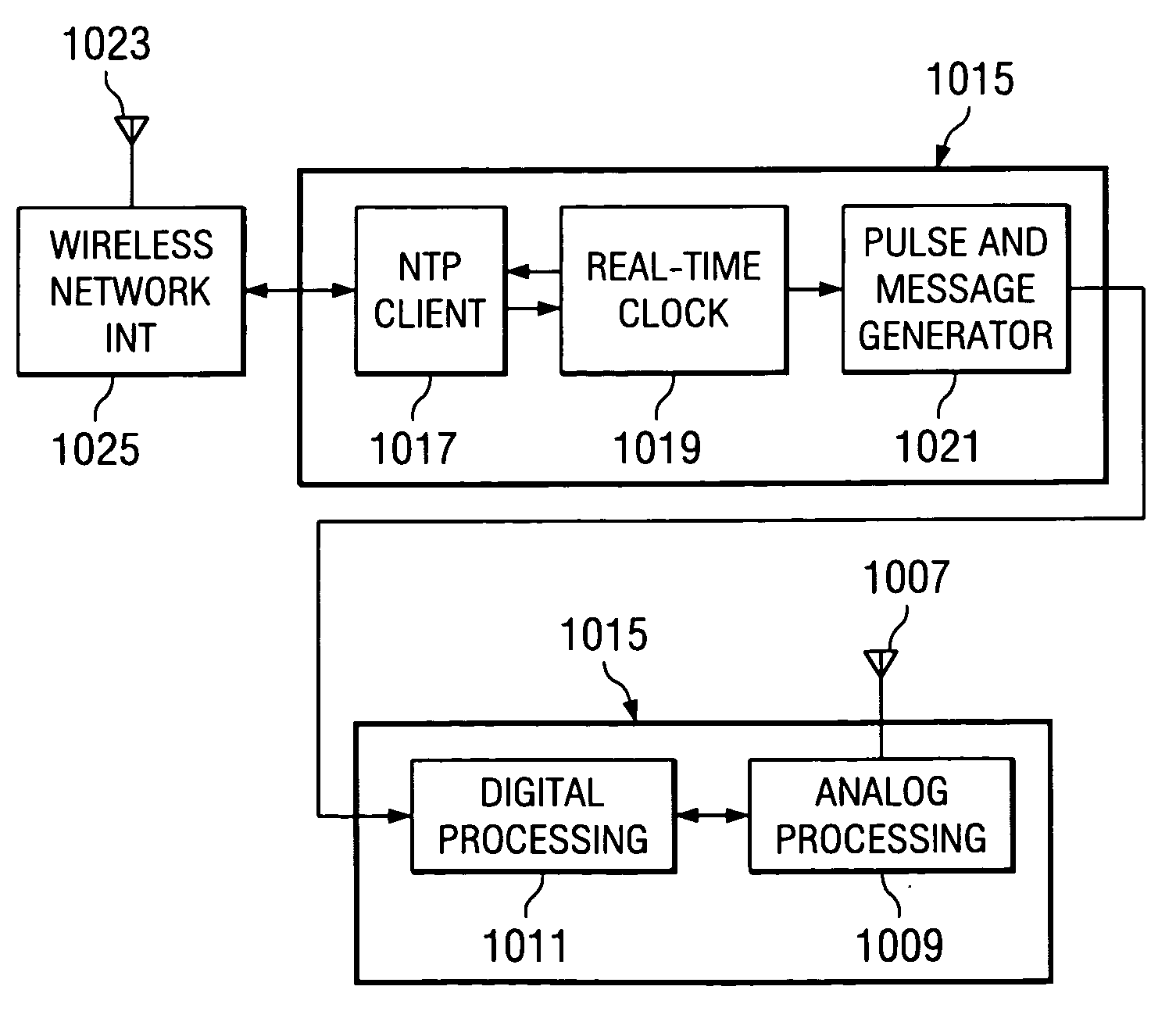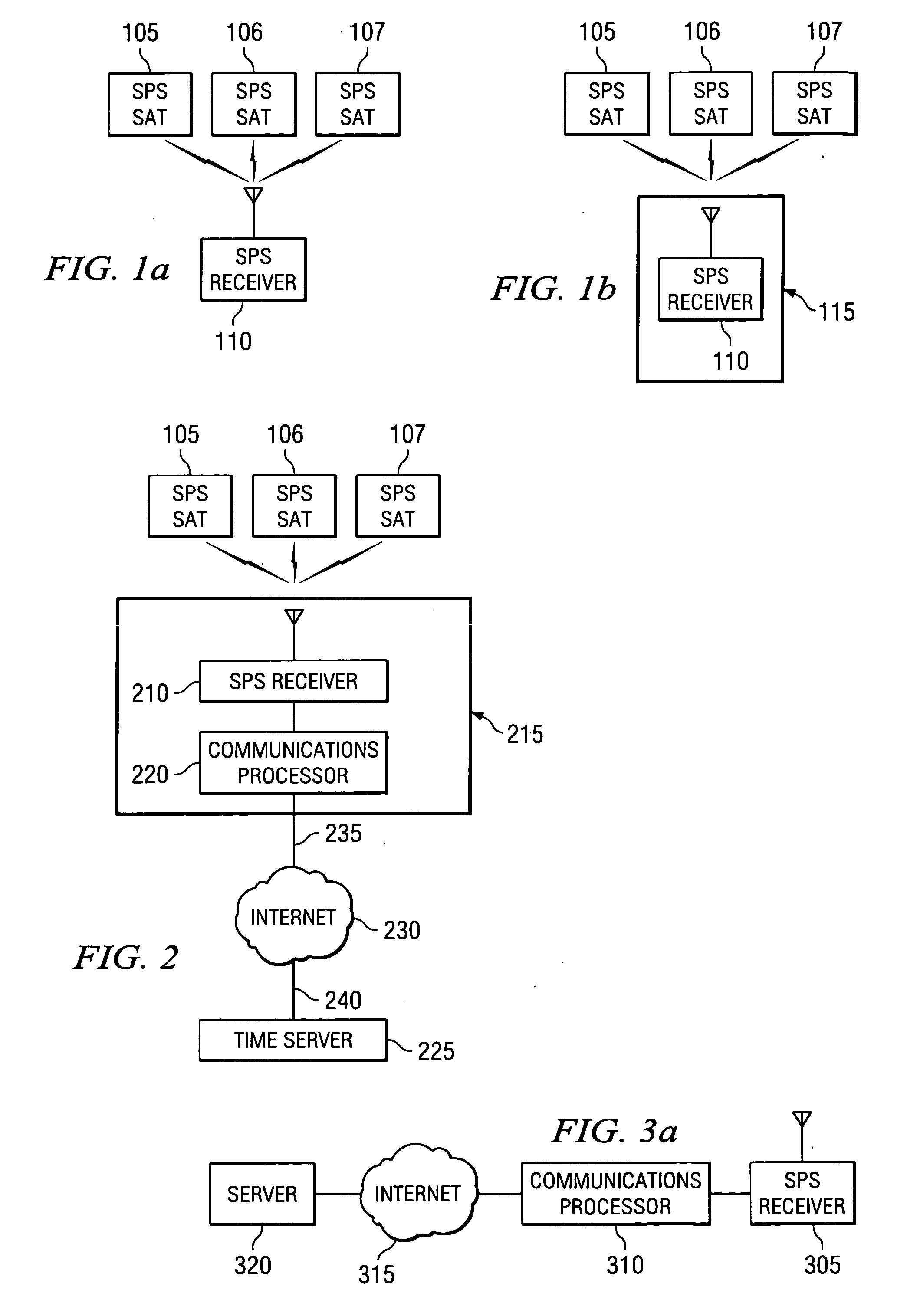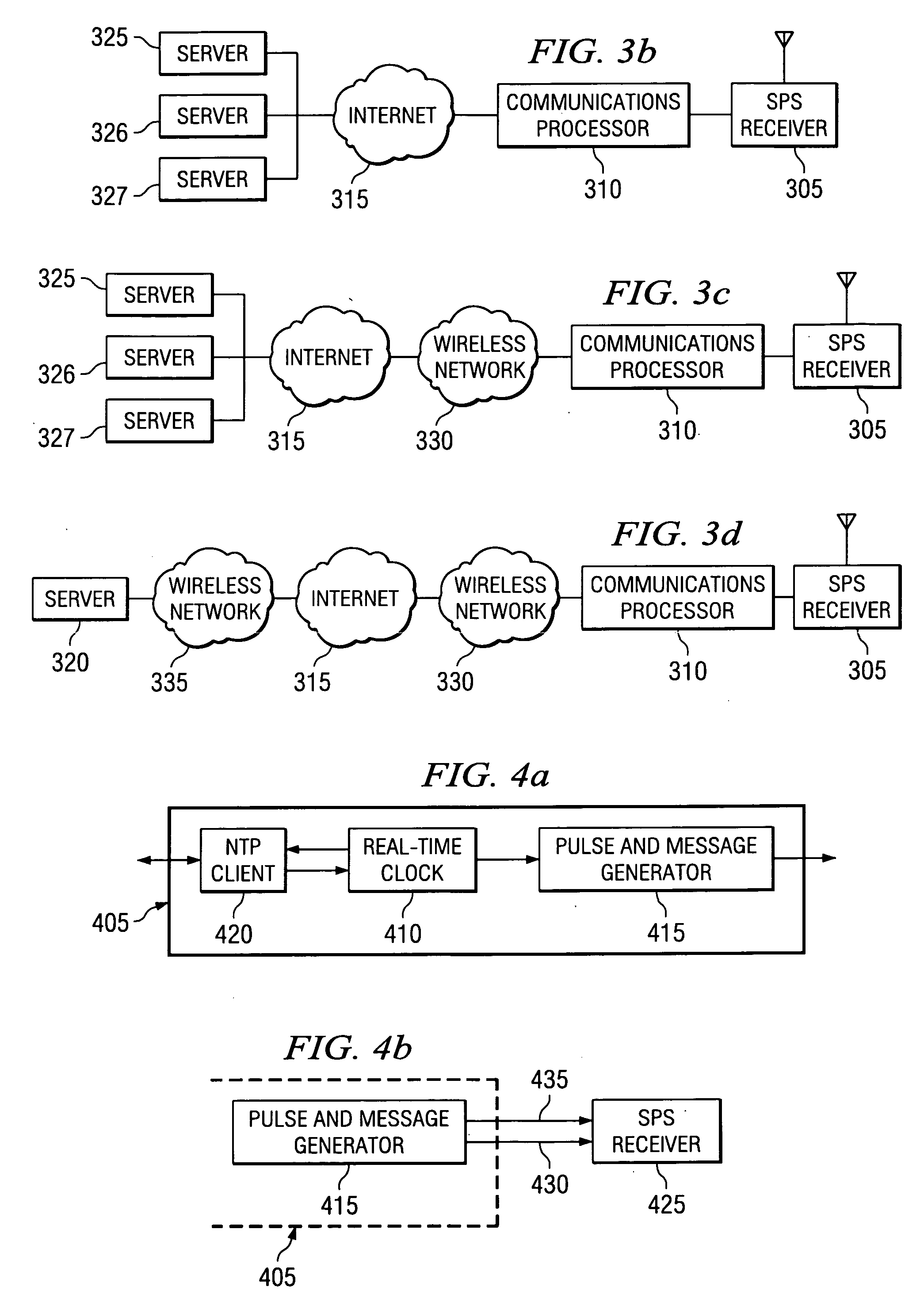System and method for providing time to a satellite positioning system (SPS) receiver from a networked time server
a satellite positioning system and receiver technology, applied in the field of satellite positioning system system and method, can solve the problems of affecting the use of clocks in certain situations, weak signals that are transmitted by satellites, and the inability to increase the transmit signal strength
- Summary
- Abstract
- Description
- Claims
- Application Information
AI Technical Summary
Benefits of technology
Problems solved by technology
Method used
Image
Examples
Embodiment Construction
[0032] The making and using of the presently preferred embodiments are discussed in detail below. It should be appreciated, however, that the present invention provides many applicable inventive concepts that can be embodied in a wide variety of specific contexts. The specific embodiments discussed are merely illustrative of specific ways to make and use the invention, and do not limit the scope of the invention.
[0033] The present invention will be described with respect to preferred embodiments in a specific context, namely a Global Positioning System (GPS) receiver that is coupled to a communications processor that is, in turn, connected to a time server, wherein the communications processor makes use of time information provided by the time server through a communications network to assist the GPS receiver. The invention may also be applied, however, to other satellite positioning systems (such as differential GPS (DGPS), Global Navigation Satellite System (GLONASS), or the Gali...
PUM
 Login to View More
Login to View More Abstract
Description
Claims
Application Information
 Login to View More
Login to View More - R&D
- Intellectual Property
- Life Sciences
- Materials
- Tech Scout
- Unparalleled Data Quality
- Higher Quality Content
- 60% Fewer Hallucinations
Browse by: Latest US Patents, China's latest patents, Technical Efficacy Thesaurus, Application Domain, Technology Topic, Popular Technical Reports.
© 2025 PatSnap. All rights reserved.Legal|Privacy policy|Modern Slavery Act Transparency Statement|Sitemap|About US| Contact US: help@patsnap.com



